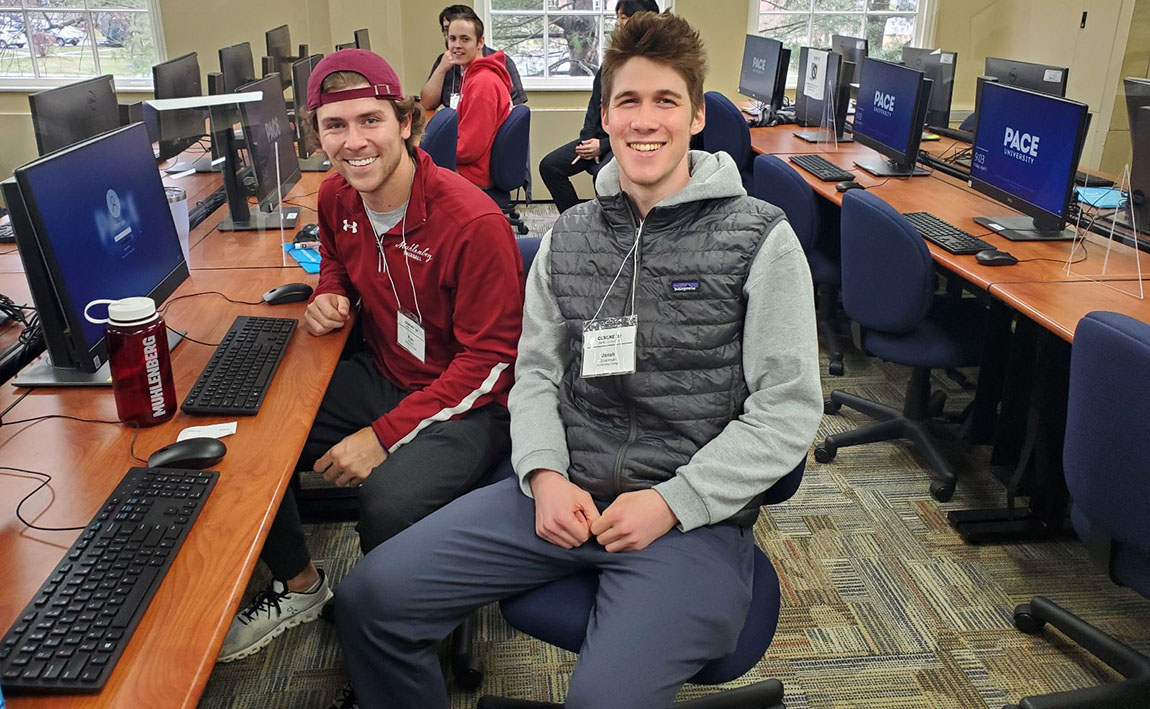Pair of Seniors Wins Programming Competition
Ryan Hebert ’22, a computer science major, and Jonah Silverman ’22, a mathematics major and statistics minor, were the second Muhlenberg team to win since 2019.By: Meghan Kita Tuesday, April 19, 2022 04:20 PM
 Ryan Hebert ’22 and Jonah Silverman ’22 at the Consortium for Computing Sciences in Colleges Northeastern Conference’s programming contest on April 1.
Ryan Hebert ’22 and Jonah Silverman ’22 at the Consortium for Computing Sciences in Colleges Northeastern Conference’s programming contest on April 1.When Ryan Hebert ’22 drove away from the Consortium for Computing Sciences in Colleges Northeastern Conference’s programming contest, he thought his team had lost. His teammate, Jonah Silverman ’22, heard another team claiming that they’d gotten six out of six problems correct. Silverman and Hebert solved only four in the allotted time. Hebert had to get to baseball practice, so he didn’t stick around to learn the official results.
The other team’s perfect score was “fake news,” Assistant Professor of Computer Science Jorge Silveyra texted Hebert later—he and Silverman had won, solving the most problems in the least amount of time. It was the second time a team from Muhlenberg won this competition, which allows the use of Java and C/C++ languages; the first was in 2019.
“The Computer Science [Program] is very much growing,” Silverman says. “This win reflects well on the [program] and [Professor] Silveyra and the other professors.”
Hebert, a computer science major, and Silverman, a mathematics major and statistics minor, came to the competition via the College’s Competitive Programming Team, which the students jokingly call “Nerd Club.” Silveyra is the group’s advisor, and he’s met with the students weekly, even in the summer, even as the pandemic sent students home. The team spends two hours each week learning algorithms and solving problems, skills they use in competitions and in classes now that they’ll also need as they enter the working world.
“Being able to evaluate a problem and think of ways to solve it … improves your ability to work as a developer,” says Silverman, who has a job lined up as a bioinformatics scientist at AtlasXomics, a Connecticut-based biotech startup.
“What we learn in Nerd Club, the algorithms we use, we are going to use [in our jobs],” adds Hebert, who will start as a software engineer at Relativity, a legal software company based in Chicago, after graduating. “The theory and the teamwork aspect of [these competitions] definitely made us better programmers.”
